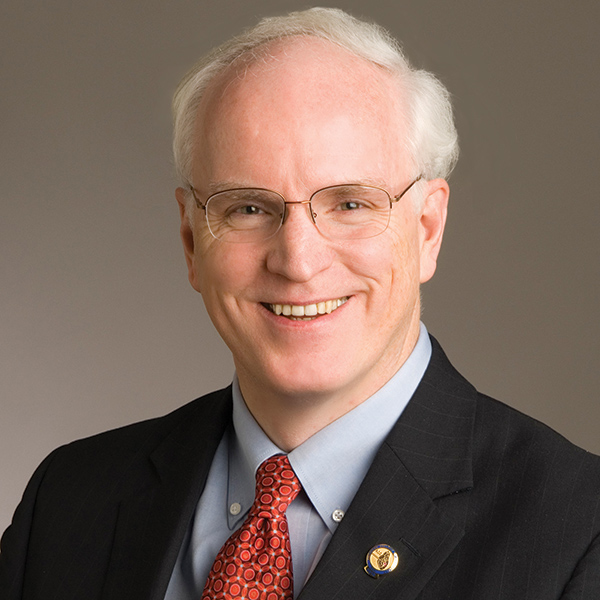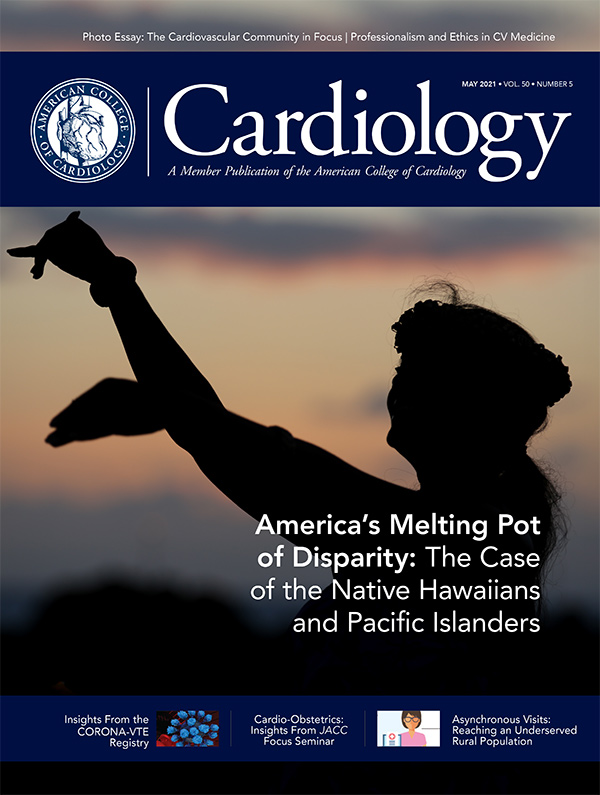Editor’s Corner | Solving For Health Inequities; Offering Hope to All

There is an Arab proverb that states: "He who has health has hope, and he who has hope has everything." Unfortunately, the COVID-19 pandemic has only served to highlight the health care disparities and inequities facing specific patient populations around the world, whether due to race and ethnicity, gender, religion and/or economic status. These disparities make it difficult to find hope as patients and their families navigate multiple barriers to necessary care and ultimately improved health.
This month's issue of Cardiology carries on our ongoing efforts to spotlight the health care challenges facing various populations and the work being done by ACC members and/or partners to offer hope and achieve the College's Vision of a world where innovation and knowledge optimize care and outcomes. Specifically, our cover story focuses on health disparities facing the Native peoples of Hawai'i, Guam, Samoa and other Pacific Islands. These populations suffer disproportionately from, among other things, stroke, cardiovascular disease and heart failure, and risk factors like obesity, diabetes and hypertension.
The good news is that entities like the Department of Native Hawaiian Health at the University of Hawai'i and the National Heart, Lung, and Blood Institute are focused on the design and implementation of culturally-relevant programs and services to address these disparities, ranging from use of Native Hawaiian patient navigators in helping patients after hospital discharge, to a unique hula-based intervention to help with hypertension.
Rural populations often face challenges in accessing care and a program created by a group of ACC members in Washington state tackles this issue and provides a model for others.
These types of innovative programs are delivering real change and personally give me hope as we look to the future.
Solving for health care disparities, as well as addressing diversity, inclusion and belonging across the profession, is a strategic priority for the ACC and is being incorporated into all aspects of the College's work. In fact, the ACC and the American Heart Association's newly released Consensus Report addressing professionalism and ethics provides tangible guidance for clinicians regarding diversity, equity, inclusion and belonging; racial, ethnic and gender inequities; and social justice (among other timely topics like clinician well-being, conflicts of interest, etc.). You can learn more about this important report and related resources here.
ACC Fellow in Training (FIT) recent graduate Heval Kelli, MD, says it best as part of this month's "Just One More" section when he notes that "diversity not only drives excellence but creates the forum to create effective and sustainable health solutions." Kelli's voice is joined by several other FITs from across the U.S. who share their thoughts on how diversity impacts their professional lives, as well as the lives of their patients.
While change doesn't happen overnight, we are making real progress as a College, a profession and a society to look internally at our own biases, have courageous conversations and learn from the past and the present to shape the future. The voices of FITs included in this issue, as well as the on-the-ground success stories we continue to highlight each month, give me hope that we are on the right track. I have no doubt that together we can advance heart health for ALL people around the world – an achievement that would mean everything!

Diversity is not just an issue for cardiologists, it is an issue for quality patient care. Learn more about the ways clinicians can incorporate diversity, equity and inclusion into practice with these following sessions from ACC.21.
- Cross-Sector Perspectives on Diversity, Equity and Inclusion: Opportunities to Strengthen the Cardiovascular Field Together
- Getting to the Heart of Costs and Quality: Global Perspectives on Value-based Care
- Achieving Gender Equity in Cardiology
- Lower Extremity PAD: Diagnostic Dilemmas, Disparities, and Patient-Centered Outcomes
- Disparities and the Role of Social Determinants of Health in Acute and Stable Ischemic Heart Disease
- Cultivating an Antiracist Culture in Cardiovascular Medicine
- Unmasking the Effect of COVID-19 on Heart Failure in Diverse Populations: Joint Symposium of the Association of Black Cardiologists and the ACC
- Working Together to Improve Pediatric and Congenital Heart Disease Care Around the World. A "Global Health Spoken Here" Session
- Pharmacologic and Lifestyle Management for ISHD: Why Disparities in Care Matter
- Holy Estrogen! Sex Disparities in Heart Failure Therapies: Biology, Bias or Both?
- Gender-Specific Care of Patients with Acute Coronary Syndrome
- Lessons From COVID in Racial/Ethnic Disparities: Implications for CV Prevention and Care
Clinical Topics: Cardiovascular Care Team, COVID-19 Hub, Prevention, Hypertension
Keywords: ACC Publications, Cardiology Magazine, Healthcare Disparities, Social Justice, American Heart Association, Rural Population, Patient Navigation, Patient Discharge, Consensus, COVID-19, Conflict of Interest, Oceanic Ancestry Group, Risk Factors, Pacific Islands, Arabs, Guam, Obesity, Hospitals, Diabetes Mellitus, Hypertension, Religion, Stroke
< Back to Listings



